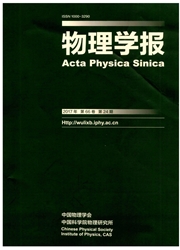

 中文摘要:
中文摘要:
心率变异性(HRV)信号能够提供心脏活动状态的重要信息.通过建立颠倒睡眠模型,联合功率谱和基本尺度熵方法分析颠倒睡眠状态下24 h的HRV信号,研究颠倒睡眠对自主神经相互作用以及HRV信号混沌强度的调制.结果表明,颠倒睡眠导致自主神经在昼夜间的活动节律发生颠倒,基本尺度熵在昼夜的变化趋势也随之发生逆转,因此HRV信号的混沌强度与自主神经的相互作用密切相关,进一步研究两者之间的关系发现:HRV信号的混沌强度与交感神经的调制强度正相关,与迷走神经的调制强度负相关.
 英文摘要:
英文摘要:
Heart rate variability(HRV) signals can provide the important information about the active state of heart. To set up a reversed sleep model, then, we analyze the 24-hours HRV signals modulated by the reversed sleep state using the power spectrum and base-scale entropy method, and study the effect of the interaction of autonomic nerve system and the chaotic intensity of HRV signals in the case of reversed sleep. Results show that because of the reversed sleep state,the activity rhythm of autonomic nerve is contrary to that in normal state. The variational trend of base-scale entropy is corresponding to that reversed in day and night. This means that the chaotic intensity of HRV signals is closely related to the reaction of autonomic nerve system. In further researches, it is found that the chaotic intensity of HRV signals is in positive correlation with the modulation intensity of sympathetic nerve, but in negative correlation with the modulation intensity of vagus.
 同期刊论文项目
同期刊论文项目
 同项目期刊论文
同项目期刊论文
 期刊信息
期刊信息
